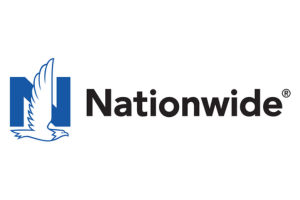Ensure Child Safety – at Home, on the Road & at School
Enhance child safety and security with Red Cross resources and robust SHA-256 encryption technology. Discover practical tips, educational materials, and innovative tools to safeguard children online and offline. Empower parents, educators, and communities to create a safer environment for the next generation.
Read more Secured with SHA-256 Encryption





Compare Quotes From Top Companies and Save
Life insurance policies starting at less than $1/day




Table of Contents


Insurance Claims Support & Sr. Adjuster
Kalyn grew up in an insurance family with a grandfather, aunt, and uncle leading successful careers as insurance agents. She soon found she has similar interests and followed in their footsteps. After spending about ten years working in the insurance industry as both an appraiser dispatcher and a senior property claims adjuster, she decided to combine her years of insurance experience with another...
Kalyn Johnson


Licensed Insurance Agent
Eric Stauffer is an insurance agent and banker-turned-consumer advocate. His priority is educating individuals and families about the different types of insurance coverage. He is passionate about helping consumers find the best coverage for their budgets and personal needs. Eric is the CEO of C Street Media, a full-service marketing firm and the co-founder of ProperCents.com, a financial educat...
Eric Stauffer
Updated October 2024
Welcome to our comprehensive guide on ensuring child safety. In this article, we will explore a range of crucial topics related to safeguarding children, both online and offline.

From tips on creating a secure home environment to educating children about potential risks, we cover it all. Discover the importance of monitoring online activities, teaching responsible digital behavior, and implementing effective safety measures.
Our mission is to empower parents, educators, and communities to protect children from harm. Ready to take the first step towards a safer future? Enter your zip code now and compare rates from the top insurance providers, ensuring your child’s protection in every aspect of life.
Stranger Danger
The phrase stranger danger is often associated with young children and is meant to help them be careful around people that they don’t know. Teaching a child that strangers can intend them harm, will help them to avoid contact with unknown people who may try to lure them away from their families. A child who has been taught this phrase will associate the stranger as being a source of danger and will not speak to or follow them. The child should also be taught what to do if approached by someone he or she doesn’t know. Depending on the situation, the child should be told to find an adult that they know, or to run away and even scream if necessary.
Stranger danger also applies to older children as well. For teens, stranger danger is a reminder to use caution when dealing with unknown people, particularly online. Because the Internet allows people to be anonymous, many predators seek out children on chat groups. They may pretend to be teens themselves or they might just try to become a friend. These types of strangers are dangerous because they may stalk or attempt to privately meet, steal, or abuse the kids they chat with. Stranger danger for older children is a reminder that even people met over the Internet are strangers and possibly dangerous.
- SafetyCops.com – Stranger Danger
- Stranger Danger for Teens
- Stranger Danger: Toddlers & Teens
- Cyber-Safe Kids Cyber-Savvy Teens: Stranger Danger Red Flags
- People Smarts (Stranger Danger)
Drug
Drugs are a problem for children of all ages. Safety against drugs begins with education. Kids that understand the risks associated with taking drugs are more likely to make the decision not to take them. Parents play a vital role in teaching children about drugs, and should begin talking to them early about why they are dangerous. Helping children know what to say when they are offered drugs will also make saying no easier. Illegal, or street, drugs, like cocaine or marijuana, are only half of the problem however. Over-the-counter, non-prescription medications, like cough medicine and medications given to family members by a doctor, are not always thought of as being dangerous and some children may think that they are okay to use. But, these types of drugs can be as dangerous as any street drugs and they can cause health problems if they’re misused. Keeping all medication in a location that children do not have access to is also a part of ensuring the safety of children.
- What if Someone Offers me alcohol or Drug
- Medication Safety for Children
- Safe Storage, Safe Dosing, Safe Kids
- Help Children and Teens Stay Drug-Free
- Keeping Your Kids Drug-Free
Alcohol
Just like with drugs, the best way to keep children safe from using alcohol is for their parents to start teaching them about its dangers as early as possible. This is important because by the age of 11, many children will have already tried alcohol. The example set by adults also plays a part in a child’s decision to drink. When there is excessive use of alcohol in the home and around them, children may choose to follow in the footsteps of the adults and other important figures in their lives. Other ways to ensure that kids are safe from the influences of alcohol is to make sure that is not easily available in the home, and to encourage activities that build up confidence and self-esteem.
- A Series of Life Lines to Help Keep Kids Safe from Alcohol
- Keeping Children Safe From Alcohol and Drugs in the Home
- Talking With Kids About Drugs and Alcohol
- Preventing Alcohol Abuse Among Teens Helping Children and Youth Just Say No
- The Cool Spot
Fire Safety
Fire safety means teaching children how to be safe during a fire and how to avoid accidentally starting them. Keep lighters, matches and other objects that can ignite, in a location where small children are unable to reach them. Children should be taught the basics of what to do, and what not to do, in the event of a fire. Basics include crawling to avoid smoke and what to do if their clothes catch fire. Younger children should also be taught not to be afraid of or hide from firefighters who are there to help them. At home, the family should have, and practice, a fire safety plan so that everyone understands how to get out of the house in case of a fire.
- FEMA: Teaching Children Fire Safety
- American Red Cross Children and Fire Safety
- Teaching Kids the Facts About Fire
- Fire Safety Tips for Kids
Car Safety
To keep younger children safe in cars, it is necessary to have the correct type of car seat. The type of car seat that is used will change the older the child becomes. Infants, for example, must be kept in a rear-facing car seat for one year or until the maximum limit for weight and height is reached. Forward-facing car seats are used for children that outgrow rear-facing car seats. These car seats are used until the child reaches the maximum size limits. The final car seat level is a booster seat. Children must a booster seat until they are 12 years old or until they properly fit the vehicle’s regular restraint system. All children are required to sit in the car’s back seat until the age of 12.
Children should never be left unattended in a vehicle, even for a short time. Temperatures inside of a car can become deadly when the vehicle is parked. In some cases, temperatures may rise by 20 degrees in only 10 minutes. As a result, a child that is left inside of a car can suffer from heat stroke or worse. Children should be taught that cars are not toys, and they should not be allowed to play inside of, or near them. When allowed to play inside or near a car, children run the risk of being backed over or they may be trapped inside of a roll away vehicle. To reduce the risk of backing up over a child, drivers should not rely on their rear view mirror. Small children will not be visible in the mirrors, so it is advisable that drivers get out of the car and physically look before backing up.
As a teen there are new dangers associated with cars. When driving, a teen must be alert and aware at all times. This means staying away from drugs or alcohol, not driving while tired, and avoiding distractions in the car. Teens should never talk on the cellphone while driving, which is illegal in many states, and avoid texting while behind the wheel. Passengers can also prove to be a distraction, and the number of people allowed to ride in the car with a new driver should be kept to a minimum.
- Keeping Children Safe in the Car
- Keeping Kids Safe Inside and Out
- How to Keep Your Kids Safe in the Car
- Car Safety for Older Children and Teen Safety Tips

Frequently Asked Questions
What is meant by “Ensure Child Safety – at Home, on the Road & at School”?
This article is about teaching parents and children how to ensure safety at home, on the road, and at school. It provides information on various types of dangers that children may face, such as stranger danger, drugs, alcohol, fires, and car accidents. The article emphasizes the importance of educating children about safety and preparing them for outside influences that could cause them harm.
What is stranger danger?
“Stranger danger” is a phrase often associated with young children, which teaches them to be careful around people they don’t know. Children are taught that strangers can pose a threat, and that they should avoid contact with unknown people who may try to lure them away from their families. The child should be taught what to do if approached by someone he or she doesn’t know. Depending on the situation, the child should be told to find an adult that they know or to run away and even scream if necessary. For older children, stranger danger is a reminder to use caution when dealing with unknown people, particularly online.
What can parents do to keep their children safe from drugs?
Parents can start by educating their children about the risks associated with drugs at an early age. Kids that understand the risks associated with taking drugs are more likely to make the decision not to take them. Parents should talk to their children about why drugs are dangerous and help them know what to say when they are offered drugs to make saying no easier. Keeping all medication in a location that children do not have access to is also a part of ensuring the safety of children.
How can parents ensure their child’s safety at school?
Parents can ensure their child’s safety at school by communicating with their child’s school and teachers, being involved in school activities and events, and monitoring their child’s behavior for signs of bullying or other issues. Parents should also teach their children about stranger danger and other potential dangers at school, such as the importance of avoiding drugs and alcohol.
How can parents keep their children safe on the road?
Parents can keep their children safe on the road by teaching them the rules of the road and how to be a safe pedestrian. Children should be taught to always wear a seatbelt while in a car, and to always wear a helmet when riding a bike. Parents should also model safe driving habits themselves and avoid driving under the influence of drugs or alcohol.
What are some resources parents can use to ensure their child’s safety?
Some free resources that parents can use to ensure their child’s safety include the American Red Cross, Prevention Network, SafetyCops.com, Cyber-Safe Kids Cyber-Savvy Teens, People Smarts, A Series of Life Lines, and The Cool Spot.
Get a FREE Quote in Minutes
Insurance rates change constantly — we help you stay ahead by making it easy to compare top options and save.







